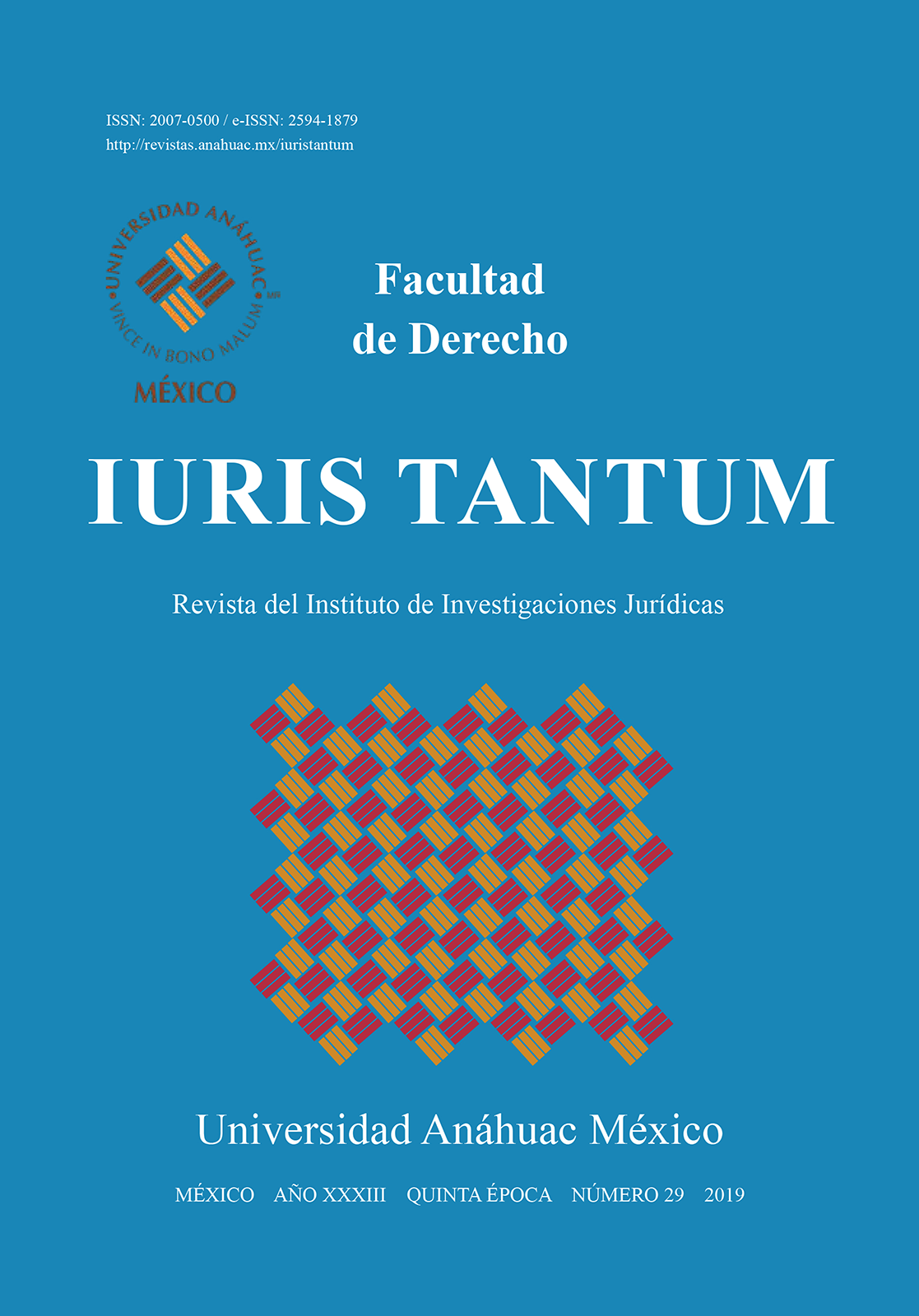PRINCIPLE OF IMPARTIALITY AS A PRESUMPTION IURIS TANTUM IN THE ACCOUNTING EXPERT EVIDENCE ON TAX MATTERS
Main Article Content
Abstract
The tax auditing expert opinion has distorted its scope when assessed by the taxing judges giving guidelines to a subjective and ambiguous interpretation scenario whose principal result is to reject the information provided to the particular theme subject to debate. Interpretation paradigms that manifest around the evaluation of this test, has taken an important turn of events to be now appreciated by its content, according
to the ontological principles that govern it, particularly the principle of impartiality as a iuris tantum presumption, due to the fact that it is through these principles that nowadays provides the elements that allows to contrast the arguments that judges use to dismiss a judgment of valuation with respect to the concrete evidence.
Downloads
PLUMX Metrics
Article Details
Iuris Tantum is distributed under international Creative Commons Attribution-NonCommercial-ShareAlike 4.0 International License.
The author keeps the property rights with no restriction whatsoever and guarantees the magazine the right to be the first publication of the work. The author is free to deposit the published version in any other medium, such as an institutional archive or on his own website.
References
ARRIETA MARTÍNEZ DE PISÓN, J. (2008). Derecho tributario y medios alternativos
de solución de controversias (Vol. 11). (F. d. (AFDUAM), Ed.) España.
Australian tax office. (2009). Practice statement law administration 2009/9, Conduct
of tax office litigation. Australia: Australian tax office.
BOTELLA GARCÍA-LASTRA, C. (1996). La finalización convencional de los
procedimientos tributarios y otras técnicas transaccionales para la resolución
de conflictos. En G. E. Pisarik, Convención y arbitraje en el Derecho Tributario.
Madrid: Marcial Pons-IEF.
Comisiones unidas de hacienda y crédito público y de estudios legislativos. Senado
de la República. (2013). Dictamen correspondiente a la minuta con
proyecto de decreto por el que se reforman, adicionan y derogan diversas
disposiciones del Código Fiscal de la Federación. México: Senado de la República.
GONZÁLEZ CASTILLO, J. (2006). La fundamentación de las sentencias y la
sana crítica. Revista Chilena de Derecho, 33(1), 93-107.
HARRISON, W., & HORNGREN, C. (2003). Contabilidad. México: Pearson.
Instituto Mexicano de Contadores Públicos. (2005). Principios de contabilidad
generalmente aceptados, (20 ed.). México: Instituto Mexicano de Contadores Públicos.
JIMÉNEZ BLANCO, G., & PUJOL, O. (2016). Arbitraje y prueba pericial. (U.
C. Uruguay, Ed.) Revista de Derecho. Publicación arbitrada de la Universidad
Católica del Uruguay., 13, 33-86.
LÓPEZ CASTRO, P. (2005). Contabilidad básica. México: Éxodo.
MIRANDA CAMARENA, A., & NAVARRO RODRÍGUEZ, P. (julio-diciembre de 2014).
El principio de interpretación conforme en el derecho constitucional
mexicano. (U. d. Medellín, Ed.) Opinión Jurídica-Universidad de Medellín, 13(26), 69-79.
PÉREZ , J.; SUÁREZ, H.; DÉNIZ, J., & BONA, C. (2007). Fundamentos de
contabilidad: teoría y práctica. Madrid: Delta publicaciones universitarias.
PÉREZ DE AYALA, J., & GONZÁLEZ GARCÍA, E. (1994). Derecho tributario
I. Salamanca, España: Plaza Universitaria ediciones.
POMBO, J. (2011). Contabilidad general. Madrid: Paraninfo.
Procuraduría de la Defensa del Contribuyente. (2014). La Procuraduria de la Defensa
del Contribuyente, Serie de cuadernos de la Procuraduría de la Defensa
del Contribuyente (Vol. XIII). México: Procuraduría de la Defensa del Contribuyente.
RAMÍREZ, J. G. (s.f.). Medios alternativos de resolución de conflictos como
solución complementaria de administración de justicia. México: Suprema
Corte de Justicia de a Nación.
SÁNCHEZ ACEVES, J. (2008). La creación de una instancia de conciliación en
materia tributaria previa al juicio de nulidad fiscal. Letras jurídicas: Revita
electrónica de derecho(6).
TROYA JARAMILLO, J. V. (2004). Los medios alternativos de solución de conflictos
y el derecho tributario internacional. (U. A. Bolivar, Ed.) Foro Revista
de Derecho(3).

